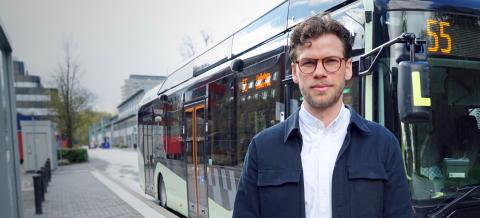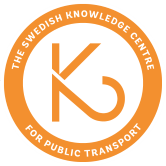Article highlighted
Mobility-as-a-Service can reduce car dependency

Fotograf: Marcus Folino
Digital services that provide access to several different mobility services are referred to as Mobility-as-a-Service, MaaS, and include everything from enhanced travel planners to mobility subscription models that bundle new mobility services with traditional public transport.
"The idea is that MaaS should be accessible and useful enough that more people find combining mobility services, bicycling and walking a better choice than car ownership. If we succeed with this, MaaS can be used as a tool to reduce society's dependence on cars", says Göran Smith, who has studied MaaS developments in Sweden, Finland and Australia.
MaaS can boost the synchronization between public transport and other mobility services, and thereby improve the ability to travel with multiple modes.
"If we tighten the links between public transport and other mobility services, the incentives to coordinate shared transfer points, price structures and timetables increase, which are important aspects for travelers in urban as well as rural areas", says Göran Smith.
Göran deems the involvement of public transport authorities as essential for the development of MaaS services that both attract users and contribute to more sustainable transport systems. The first MaaS concept in Sweden was tested in the Västra Götaland region. Several pilots have since been launched throughout the country. No public transport authority has a ready-made solution yet, but to make that the case, experiences with MaaS developments are exchanged in a network entitled KOMPIS, which also gathers representatives from the private sector, municipalities and national-level government agencies.
Göran moreover believes that the nationwide approach to third-party resale of mobility services, recently proposed by the governmental inquiry into a national ticketing system for public transport, could contribute to the introduction of MaaS in Sweden.
"The possibility of reselling digital public transport tickets is a prerequisite for the MaaS model being developed in Sweden right now. A national approach could accelerate this work", Göran Smith concludes.
Göran Smith will defend his thesis Making Mobility-as-a-Service: Towards Governance Principles and Pathways on June 11. During his doctoral studies at Chalmers University of Technology,
Göran has been associated with Region Västra Götaland and K2 – the Swedish Knowledge Center for Public Transport.
Contact:
Göran Smith, industrial doctoral student at Chalmers University of Technology
e-mail: goran.smith@chalmers.se
phone: +46 73 390 18 71
